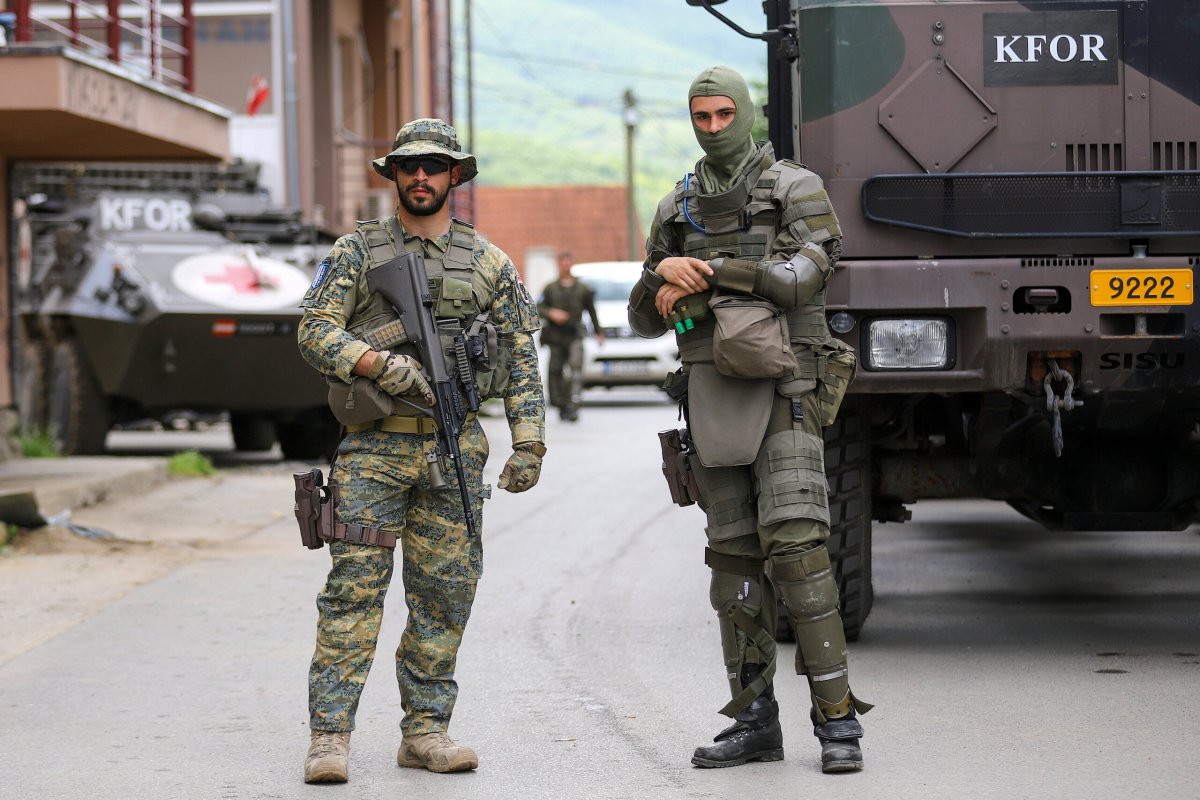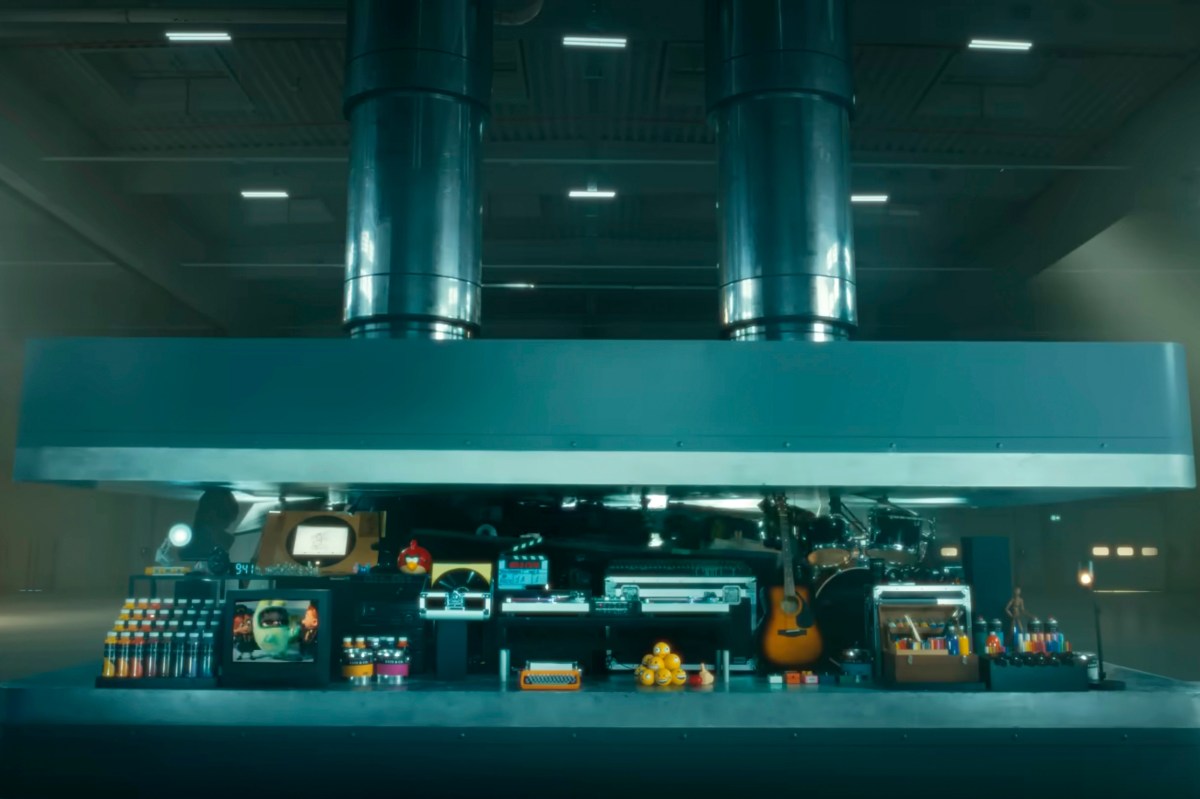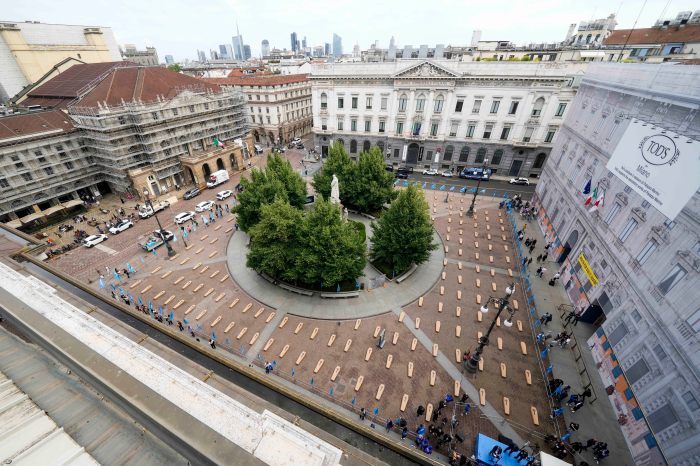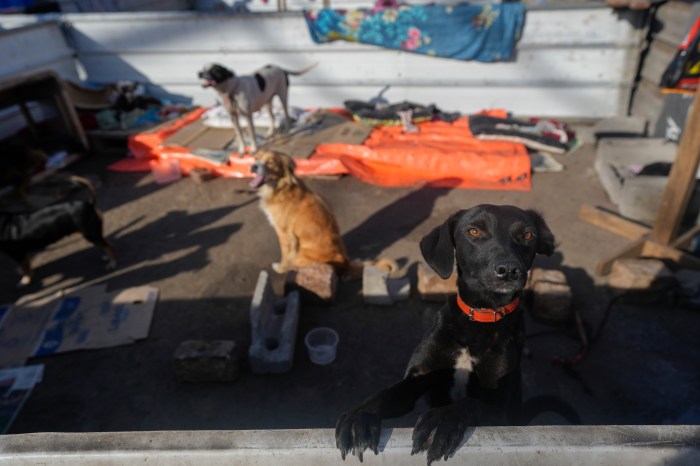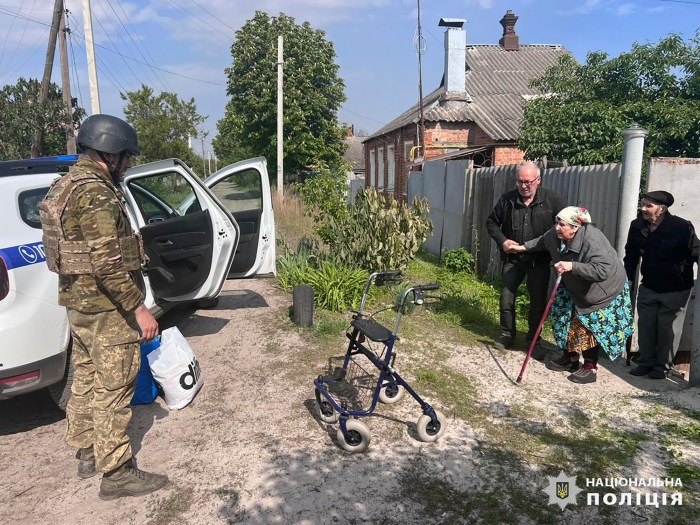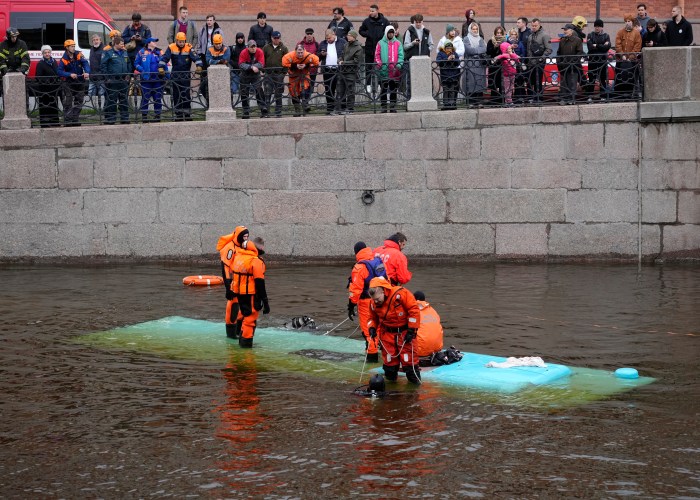PRISTINA, Kosovo (AP) — NATO will send 700 more troops to northern Kosovo to help quell violent protests after clashes with ethnic Serbs there left 30 international soldiers wounded, the alliance announced Tuesday.
The latest violence in the region has stirred fear of a renewal of the 1998-99 conflict in Kosovo that claimed more than 10,000 lives, left more than 1 million people homeless and resulted in a NATO peacekeeping mission that has lasted nearly a quarter of a century.
The clashes grew out of a confrontation that unfolded last week after ethnic Albanian officials elected in votes overwhelmingly boycotted by Serbs entered municipal buildings to take office. When Serbs tried to block them, Kosovo police fired tear gas to disperse the crowd.
More violence followed on Monday when Serbs clashed with police and NATO peacekeepers.
NATO Secretary-General Jens Stoltenberg said an additional reserve battalion would be put on high readiness in case additional troops are needed.
“These are prudent steps,” said Stoltenberg, who made the announcement in Oslo after talks with the Norwegian prime minister.
The NATO-led peacekeeping mission in the region is known as KFOR and currently consists of almost 3,800 troops.
Also Tuesday, KFOR’s multinational peacekeepers used metal fences and barbed-wire barriers to reinforce positions in a northern town that has become a hot spot. The troops sealed off the municipal building in Zvecan, where unrest on Monday sent tensions soaring.
A former province of Serbia, Kosovo’s 2008 declaration of independence is not recognized by Belgrade. Ethnic Albanians make up most of the population, but Kosovo has a restive Serb minority in the north of the country bordering Serbia.
Stoltenberg condemned the violence and warned that NATO troops would “take all necessary actions to maintain a safe and secure environment for all citizens in Kosovo.”
He urged both sides to refrain from “further irresponsible behavior” and to return to EU-backed talks on improving relations.
The United States and most European Union nations have recognized Kosovo’s independence from Serbia while Russia and China have sided with Belgrade. China on Tuesday expressed its support for Serbia’s efforts to “safeguard its sovereignty and territorial integrity,” and Moscow has repeatedly criticized Western policies in the dispute.
In response to the confrontation last week, Serbia put the country’s military on the highest state of alert and sent more troops to the border with Kosovo. The Serbs protested again Monday, insisting that both ethnic Albanian mayors and Kosovo police must leave northern Kosovo.
The confrontations worsened when Serbs attempted to enter the municipal offices in Zvecan, 45 kilometers (28 miles) north of the capital, Pristina. They clashed first with Kosovo police and then with the international peacekeepers.
In a video message issued Tuesday evening, Kosovo Prime Minister Albin Kurti said the mayors elected on April 23 “are the only ones who have the legitimacy to be at the municipal buildings and to the citizens’ service.”
Instigators of the violence have been identified, according to the prime minister, who named some Serb businessmen who oblige their employees to protest.
“In Kosovo, power is won through elections, not with violence and crime,” he said.
The United States and the EU recently stepped up their efforts to negotiate an agreement between Serbia and Kosovo, fearing instability as Russia’s war rages in Ukraine. The EU has made it clear to both Serbia and Kosovo that they must normalize relations if they’re to make any progress toward joining the bloc.
“We have too much violence in Europe already today. We cannot afford another conflict,” the EU’s foreign policy chief, Josep Borrell, told reporters Tuesday in Brussels.
As a first step to easing tensions, he said, Kosovo police should suspend the operation focusing on municipal buildings in the north, and violent protesters should “stand down.”
In response to the recent unrest, NATO has decided to increase its KFOR troops with the deployment of “operational reserve forces” for the Western Balkans, a statement said, without specifying a number. Another unit will be on standby “to be ready to reinforce KFOR if necessary.”
A statement issued Tuesday by KFOR said 30 soldiers — 11 Italians and 19 Hungarians — were hurt, including fractures and burns from improvised explosive incendiary devices.
Three Hungarian soldiers were “wounded by the use of firearms,” but their injuries were not life-threatening, the statement added.
Serb officials said 52 people were injured, including three seriously. Four protesters were detained, according to Kosovo police.
“Both parties need to take full responsibility for what happened and prevent any further escalation, rather than hide behind false narratives,” KFOR commander Maj. Gen. Angelo Michele Ristuccia said.
Belgrade and Pristina have blamed each other for the escalation.
Meanwhile, ambassadors from the so-called Quint countries — France, Germany, Italy, the United Kingdom and the U.S. — met Monday with Kurti in Pristina and on Tuesday with Serbian President Aleksandar Vucic in Belgrade.
Vucic later also met with the ambassadors in Serbia of Russia and China.
In a statement from his office, Vucic expressed “immense dissatisfaction and strong concern” over what he described as international “tolerance” of Kurti’s actions that fueled violence against Serbs.
Urgent measures to guarantee the security of the Serbs in Kosovo are a precondition for any future talks, Vucic insisted.
Kurti has thanked KFOR troops for “valiant action to preserve peace in the face of violent extremism.”
Russia and China both have sharply criticized Western backing for Kosovo’s independence. Russian President Vladimir Putin often has cited the “precedent” of NATO bombardment of Serbia in 1999 to justify his unlawful annexation of parts of Ukraine.
The conflict in Kosovo erupted in 1998 when separatist ethnic Albanians rebelled against Serbia’s rule, and Serbia responded with a brutal crackdown. About 13,000 people, mostly ethnic Albanians, died.
NATO’s military intervention in 1999 eventually forced Serbia to pull out of the territory and paved the way for the establishment of the KFOR peacekeeping mission.
Semini reported from Tirana, Albania. Associated Press writers Dusan Stojanovic and Jovana Gec in Belgrade, Serbia; Lorne Cook in Brussels; and Nicole Winfield in Rome, contributed to this report.

